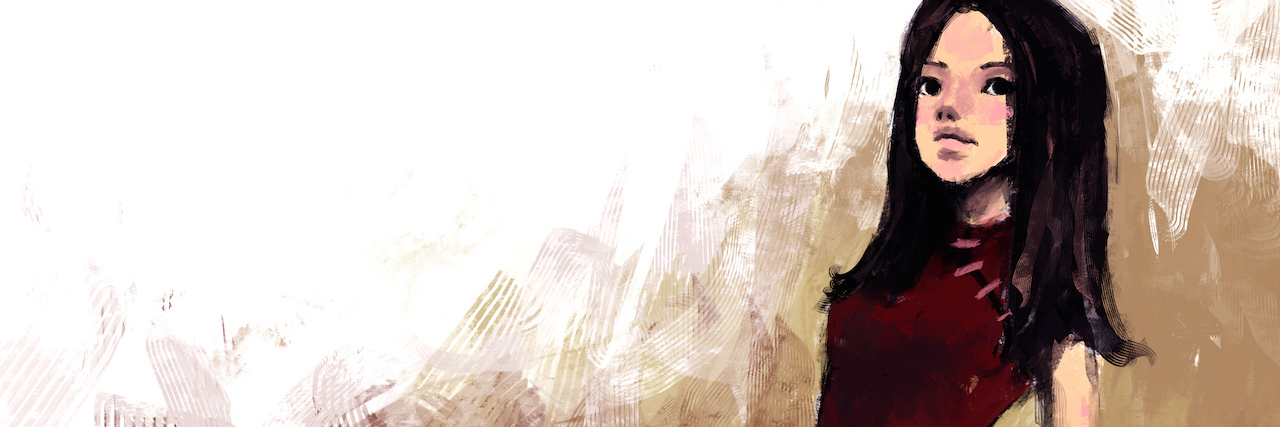When the End of a Friendship Is Actually a Blessing
Editor's Note
If you’re looking for creative inspiration, check out the Daily Inspirations group on The Mighty.
I’d always been afraid of being the party who was dumped in a relationship, even a platonic one. After a childhood where I was blamed for seemingly every misfortune that befell me, I felt that I needed to accommodate everyone in my circle of friends at all times. Thus, I would often not speak out privately and even apologize when I knew I was right, just to keep the peace. At a certain point, however, I knew that I could no longer tolerate abusive behavior, and that there were times where rejection from someone I considered a friend was the biggest blessing.
I learned this lesson with a compatriot I shall call Eddie. While he had a number of wonderful qualities, when his mother died, his propensity toward narcissistic expectations and the attendant rages that followed wreaked havoc upon my life. Whenever I tried to confront Eddie, even about trivial matters, he would become more and more belligerent. Since I thought the worst thing was to rupture a relationship, I kept quiet. Even though I was frightened by his tales of discarding people over perceived grievances, still I did everything I could to please him. From listening to his 30 minute Facebook message monologues to consoling him every time he claimed he was bullied, I spent whole nights in futile attempts to preserve the relationship.
As these “conversations” never veered around to the vicissitudes of my existence, and every time I talked about my own problems I was lucky to get even 10 minutes of attention, I began to realize that maybe I would be better off without Eddie’s one-way friendship. Still, the shibboleth that I was always at fault when a friendship ruptured — something imbued in me after a childhood of being the family scapegoat — prevented me from confronting Eddie’s narcissistic tendencies in any meaningful fashion. After all, Eddie’s stories about constantly discarding people made me deathly afraid of being his next victim. But the truth was so long as I remained in the relationship I was the one being victimized.
Then, one day Eddie pushed me too far. He used the laughing emoji on a Facebook private message where I was confiding my inner trauma about rejection. He tried to deflect his way out of responsibility, but he refused to apologize. I finally brought up the elephant in the room, Eddie’s lack of empathy. The person I had listened to endlessly about his trauma, even when he described experiences that triggered my post-traumatic stress disorder (PTSD), told me to “have a nice life.” While I was confused by his reactivity, I later learned that since I unmasked Eddie for the person that he had become, that I inevitably became his next discard.
While it was painful at first, I am thankful I no longer have to spend nights listening to what I came to realize were his exaggerated tales of victimhood. I now have far more time to nurture my healthier friendships, ones based on give and take, and where both parties are genuinely interested in the other’s trials and tribulations. I now have more time to look at art, listen to music and just enjoy being alone — sans the late-night bings of Facebook Messenger luring me into another futile rant about a discard. Finally, I learned that no matter what my parents instilled in me as a child, the worst thing is not a friendship ruptured, but rather is an abusive relationship where a person with narcissistic needs drains me of my time, energy and goodwill.
I also had to come to terms that in not setting healthy boundaries, I was harming myself. No one should settle for any kind of relationship — friendship or romance — where one party acts entitled to the other’s listening ear without any kind of reciprocation. It also is a red flag when someone does not feel that she can confront her friend and hold him accountable, without verbal or even physical fisticuffs. Furthermore, any kind of companionship where one person does not respect the other’s time is not a healthy one; when an individual expects such a degree of devotion that the other has to put aside such basic needs as sleep, leisure activities and even other friendships, then it may be time to evaluate the role that the other party has in one’s life. While it can be scary to terminate a familiar bond, the rupturing of an unhealthy relationship can be the biggest blessing, the fruits of truly valuing oneself and one’s own emotional needs.
Getty image via Archv

